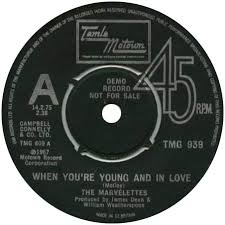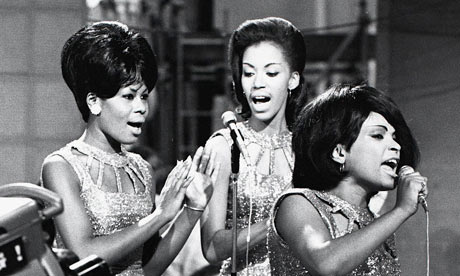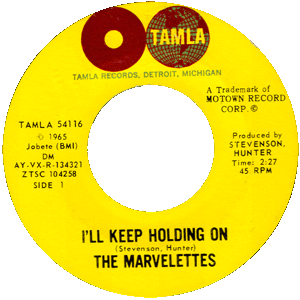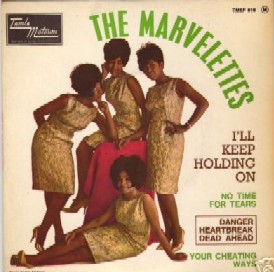Welcome To Northernsoultrain
Marvellettes
The Marvelettes were an all-girl group who achieved popularity in the early to mid-1960s. They consisted of schoolmates Gladys Horton, Katherine Anderson (nee Schnaffer), Georgeanna Tillman (nee Gordon), Juanita Cowart (later Juanita Cowart Motley) and Georgia Dobbins, who was replaced by Wanda Young (nee Rogers) prior to the group signing their first deal. The group was the first major successful act of Motown Records after The Miracles and were its first significant successful girl group on the label's early years after the release of the number-one single, "Please Mr. Postman", one of the first number-one singles recorded by an all-female vocal group and the first by a Motown recording act.
Founded in 1960 while the group's founding members performed together at their glee club at Inkster High School in Inkster, Michigan,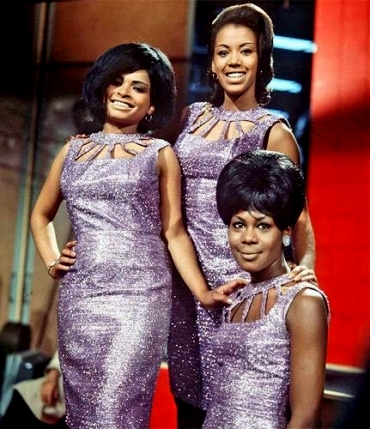 they eventually were signed to Motown Records' Tamla label in 1961. Some of the group's early hits were written by band members and some of Motown's rising singer-songwriters such as Smokey Robinson and Marvin Gaye, who played drums on a majority of their early recordings. Despite their early successes, the group was eclipsed in popularity by groups like The Supremes, with whom they shared an intense rivalry and struggled with issues of dismal promotion from Motown, illnesses and mental breakdowns, with Cowart the first to leave in 1963, followed by Georgeanna Tillman two years later and Gladys Horton two years after that. Nevertheless, they managed a major comeback in 1966 with "Don't Mess with Bill", followed by a few smaller follow-up hits.
they eventually were signed to Motown Records' Tamla label in 1961. Some of the group's early hits were written by band members and some of Motown's rising singer-songwriters such as Smokey Robinson and Marvin Gaye, who played drums on a majority of their early recordings. Despite their early successes, the group was eclipsed in popularity by groups like The Supremes, with whom they shared an intense rivalry and struggled with issues of dismal promotion from Motown, illnesses and mental breakdowns, with Cowart the first to leave in 1963, followed by Georgeanna Tillman two years later and Gladys Horton two years after that. Nevertheless, they managed a major comeback in 1966 with "Don't Mess with Bill", followed by a few smaller follow-up hits.
The group ceased performing together in 1969 and, following the release of The Return of the Marvelettes in 1970, featuring only Wanda Rogers, the group disbanded for good, with both Rogers and Katherine Anderson leaving the music business.
The group has received several honors, including the Vocal Group Hall of Fame and the Pioneer Award from the Rhythm and Blues Foundation. In 2005, two of the group's most successful recordings, "Please Mr. Postman" and "Don't Mess with Bill" earned million-selling Gold singles from the RIAA. In 2012, the Marvelettes were nominated for 2013 induction to the Rock & Roll Hall of Fame.
Origins and initial success
The group that would become the Marvelettes formed at Inkster High School in Inkster, Michigan, a suburb located west of Detroit, Michigan by fifteen-year-old glee club member Gladys Horton in the fall of 1960. Horton enlisted older glee club members Katherine Anderson, Georgeanna Tillman, Juanita Cowart and Georgia Dobbins, who was already a high school graduate, to join her. The members struggled to come up with a name for their new act until one of the members jokingly took a stab at their own singing abilities saying "we can't sing yet." Horton altered the saying to "The Casinyets".
In 1961, the quintet, which had then changed her name to the Marvels, entered a talent show contest on the behest of their teacher and ended up finishing in fourth place. Though only the first three winners were offered a trip to audition for the fledging Motown label, two of the girls' school teachers advised that they be allowed to audition too. Upon auditioning for Motown executives including Brian Holland and Robert Bateman, they had a second audition with bigger staff including Smokey Robinson and the label president and founder, Berry Gordy, who while impressed with their vocal styles advised them to come back with their own composition. Returning to Inkster, Georgia Dobbins contacted a local musician named William Garrett, who had an unfinished blues composition he titled "Please Mr. Postman". Garrett allowed Dobbins as long as he kept songwriting credits in case the song became a hit. Despite the fact that she had no previous songwriting experience, Dobbins took the song home and reshaped the song overnight to reflect the teenage sound of doo-wop
Prior to returning to Motown, Dobbins left the group due to her growing family and her father, who advised her not to continue her career in show business. Dobbins left Horton in full charge of the group. To replace her, Horton asked another Inkster graduate, Wanda Young, to replace Dobbins. When the group returned and performed their composition, Gordy agreed to work with the group but under the advice that they change their name. Gordy renamed them The Marvelettes and signed the act to Motown's Tamla division in July 1961. The following month, the group recorded "Please Mr. Postman", which was polished by Brian Holland and Robert Bateman, and another composition, "So Long Baby", sung by Wanda. Tamla issued "Please Mr. Postman" the following September. The song then made a slow but eventual climb to the top of the singles chart, reaching 1 that December. making them the first Motown act to have a number-one hit on the Hot 100.
To follow up on this success, Motown had the group record "Twistin' Postman" to take advantage of the twist dance craze and the re-release of Chubby Checker's "The Twist". The song eventually peaked at 34 on the pop chart in early 1962. Before the end of 1961, Tamla issued the first Marvelettes album, also named Please Mr. Postman, but it failed to chart. The group's next single, "Playboy", marked the second time one of their singles was written by a band member, this time by Gladys Horton. Like "Postman", the song was retooled by other writers and upon its released in early 1962, reached 7. A fourth hit, "Beechwood 4-5789", co-written by Marvin Gaye, reached #17. During 1962, two more albums would be issued by the band including The Marvelettes Sing and Playboy. Following the success of "Beechwood", R&B radio stations also frequently played the song's b-side, "Someday, Someway", which paid off sending the song to 8 on the R&B chart becoming their first double-sided hit.
Due to their success, the group had to leave school in order to perform for audiences and despite the promise of tutors to help with their schooling, they were never granted any. Due to their young ages and Horton being an orphaned ward of the courts, they eventually were taken in by Esther Gordy Edwards, who bussed them to Motortown Revue shows. After several successful Top 40 recordings, the group released the modest success, "Strange I Know", which peaked at #49. In early 1963, the group was shortened to a quartet when Juanita Cowart opted to leave the band citing a mental breakdown caused by stress from performing on the road and a mistake she made in describing the group's background during an appearance on American Bandstand. Carrying on as a quartet, the group issued one of Holland–Dozier–Holland's early compositions, "Locking Up My Heart", which peaked at #44. It was one of the first singles to feature Horton and Young in co-leads. The success of "Locking" was probably tested due to strong airplay by the song's B-side, the Young-led ballad "Forever", which also received a pop charting, peaking at #78. Following this, Berry Gordy composed and produced the single, "My Daddy Knows Best", but this led to their lowest charting at the time, 97.
The departure of Georgeanna Tillman and renewed success
By 1964, the majority of American vocal groups especially all female bands such as The Shirelles and The Ronettes started struggling with finding a hit after the arrival of British pop and rock acts. In the meantime, other Motown girl groups such as Martha and The Vandellas and The Supremes were starting to get promoted by Motown staff with the Vandellas becoming the top girl group of 1963. The following year, the Supremes took their place as the label's top primary female group after a succession of hit recordings that year, culminating in the release of their second album, Where Did Our Love Go, which Motown was able to promote successfully. Contrary to popular belief, the Marvelettes never received the song, "Where Did Our Love Go", which the Supremes later recorded as their first number-one hit, though Wanda Young-Rogers was to have said that she thought the song was "absolutely ridiculous"
That year, the Marvelettes reached the top forty with the Norman Whitfield production, "Too Many Fish in the Sea", reaching 25 with the recording. By now, Motown had begun its charm school hiring choreographer Cholly Atkins and Maxine Powell to refine the label's acts. Atkins began polishing the Marvelettes' dance moves while Powell taught the group to be more graceful. telling them and every other Motown act that they would "perform in front of kings and queens". Meanwhile two of the Marvelettes got married: Georgeanna Tillman married longtime boyfriend Billy Gordon of The Contours and Wanda Young married her longtime boyfriend Bobby Rogers of The Miracles changing her name to Wanda Rogers. By the end of 1964, Georgeanna Tillman, a longtime sufferer of sickle cell anemia was diagnosed with lupus. By early 1965, struggling to keep up with their stringent recording sessions and touring schedules and her illnesses, a doctor of Tillman's advised her to leave performing for good. The rest of the Marvelettes carried on as a trio from then on.
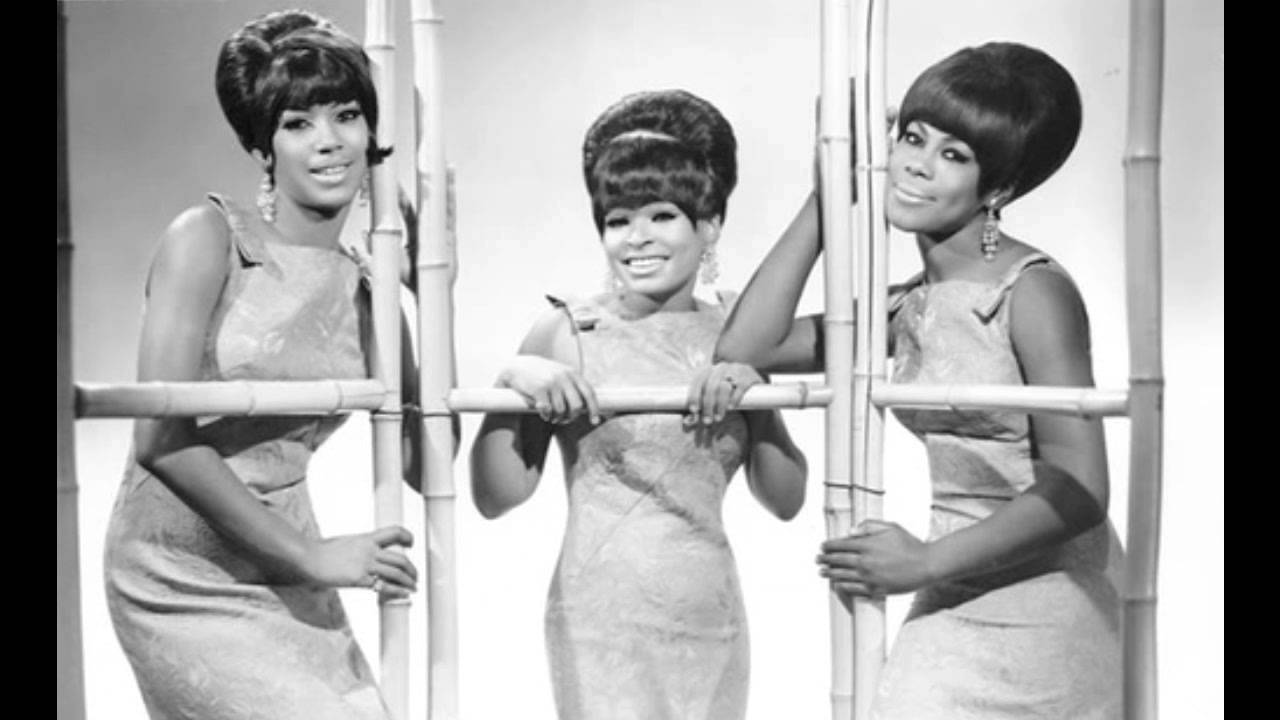
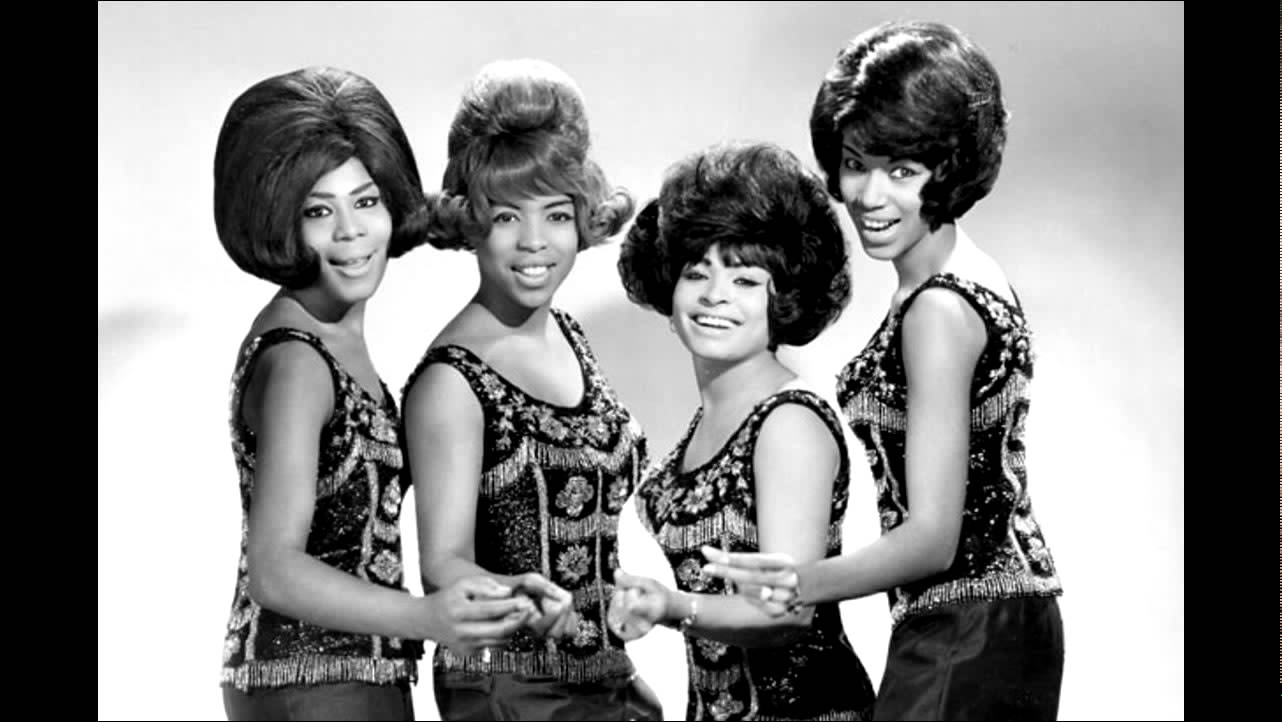
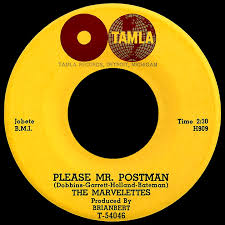
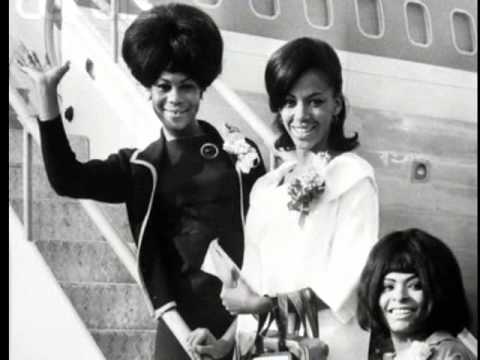
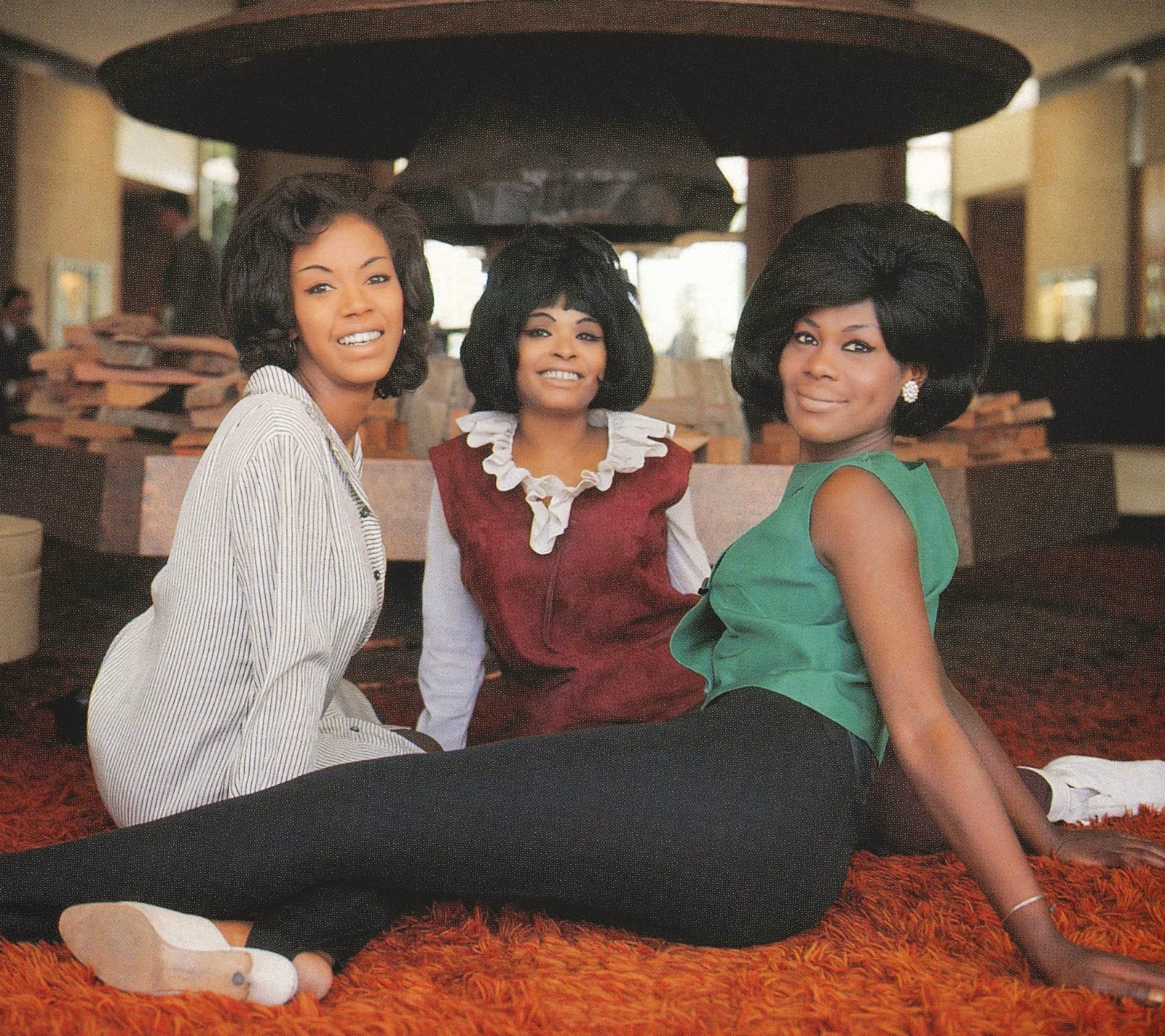
 7.jpg)
